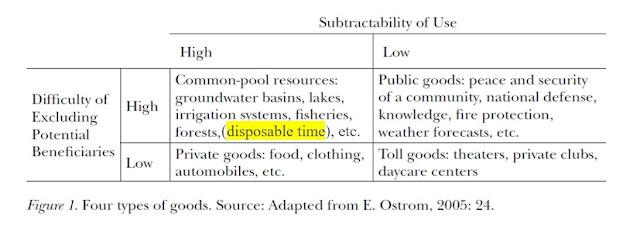Two key features of Ostrom's analysis: the distinguishing of a spectrum of separable property rights rather than monolithic "ownership" and the use of a grid that classifies goods according to how difficult it is to restrict access to them and the extent to which one person's use of a good subtracts from what is left available for others. Schlager and Ostrom identified a bundle of property rights pertaining to natural resources that they defined as follows:Access: "The right to enter a defined physical property."Withdrawal: "The right to obtain the "products" of a resource (e.g., catch fish, appropriate water, etc.)."Management: "The right to regulate internal use patterns and transform the resource by making improvements."Exclusion: "The right to determine who will have an access right,
Topics:
Sandwichman considers the following as important:
This could be interesting, too:
Robert Vienneau writes Austrian Capital Theory And Triple-Switching In The Corn-Tractor Model
Mike Norman writes The Accursed Tariffs — NeilW
Mike Norman writes IRS has agreed to share migrants’ tax information with ICE
Mike Norman writes Trump’s “Liberation Day”: Another PR Gag, or Global Reorientation Turning Point? — Simplicius
Two key features of Ostrom's analysis: the distinguishing of a spectrum of separable property rights rather than monolithic "ownership" and the use of a grid that classifies goods according to how difficult it is to restrict access to them and the extent to which one person's use of a good subtracts from what is left available for others. Schlager and Ostrom identified a bundle of property rights pertaining to natural resources that they defined as follows:
- Access: "The right to enter a defined physical property."
- Withdrawal: "The right to obtain the "products" of a resource (e.g., catch fish, appropriate water, etc.)."
- Management: "The right to regulate internal use patterns and transform the resource by making improvements."
- Exclusion: "The right to determine who will have an access right, and how that right may be transferred."
- Alienation: "The right to sell or lease either or both of the above collective-choice (management and exclusion) rights."

